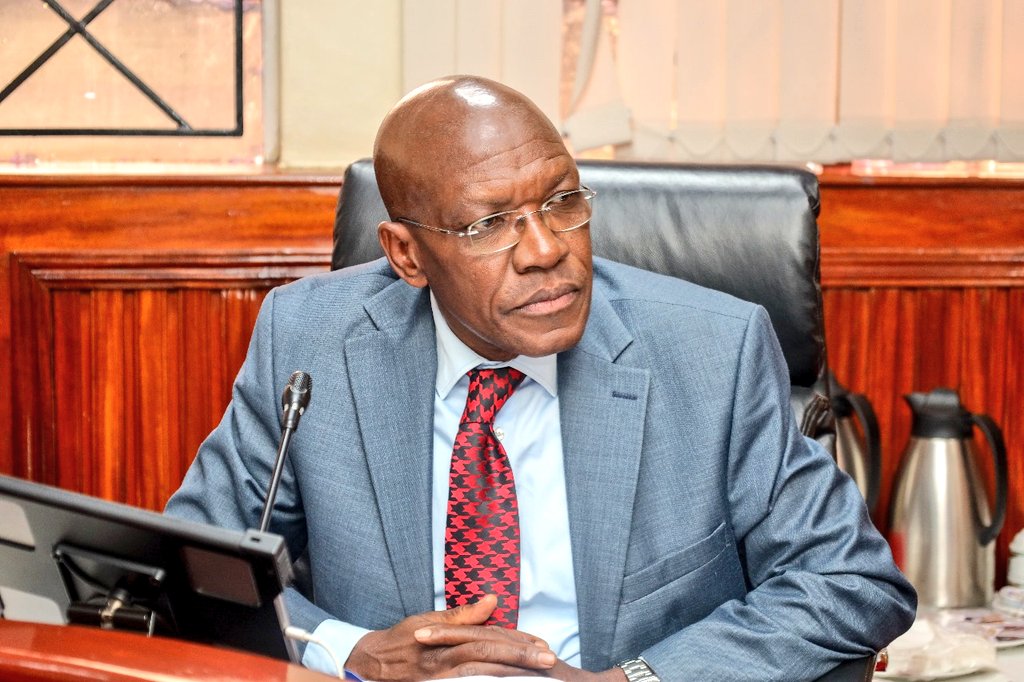Raila condemns MPs' push for revenue control, warns of threat to devolution

The Division of Revenue (Amendment) Bill has triggered a standoff between the National Assembly and the Senate, now under mediation.
Azimio La Umoja Coalition leader Raila Odinga has condemned Members of Parliament (MPs) for their attempt to gain control over county revenue allocations through the Division of Revenue (Amendment) Bill, 2024.
Speaking during a press briefing on Friday, Raila accused the MPs of overstepping their constitutional mandate and undermining devolution.
More To Read
- Saboti MP Caleb Amisi warns ODM may not survive 2027 after by-election struggles
- Senate convenes special sitting to hear Governor Nyaribo’s impeachment charges
- Raila Odinga's sister Beryl Achieng dies
- MPs fault State officers over mismanaged road projects
- MPs warn Sh2.4 billion tax dispute between KRA and NG-CDF could paralyse constituencies
- Why fight over ODM threatens party’s future, Odinga dynasty - analysts
The bill, sponsored by Kiharu MP Ndindi Nyoro, proposes allocating Sh380 billion to counties, a figure Raila disputes, arguing it falls short of the Sh400 billion stipulated in the current Appropriations Act.
The law mandates that at least 15 per cent of the national revenue must be allocated to counties.
"This standoff is about a power grab and an assault on the Constitution. MPs are attempting a cruel betrayal of the people and an overhaul of our governance structure," Raila said.
The Division of Revenue (Amendment) Bill has triggered a standoff between the National Assembly and the Senate, now under mediation.
Senators had initially proposed a Sh416 billion allocation to counties, which was later reduced to Sh400 billion.
However, MPs amended the proposal, bringing it down further to Sh380 billion, citing austerity measures and a projected revenue shortfall.
Threat to Devolution
Raila who is also the ODM Party leader expressed concerns that the bill undermines devolution, a key pillar of the 2010 Constitution, and gives MPs undue control over funds meant for counties.
He accused lawmakers of attempting to manage resources meant for governors while simultaneously controlling other funds, such as the National Government Constituencies Development Fund (NGCDF) and the National Government Affirmative Action Fund (NGAAF).
"Execution or implementation of programmes has never been and can never be the job of Parliament without creating a serious accountability crisis in our governance system," Raila said.
"This is not only illegal and unconstitutional but sets an extremely dangerous precedent," he added.
The ODM party leader further alleged that MPs have already misused NGCDF by acting as contractors and overseeing projects they were meant to monitor.
"We have a situation where an MP himself is the contractor. There are several cases where the President is going to open a road, and the MP is the contractor. This is shameful," he said.
The ongoing mediation process, co-chaired by MP Nyoro and Mandera Senator Ali Roba aims to resolve the impasse between the two Houses of Parliament.
During the initial meetings, Nyoro defended the National Assembly's decision, explaining that the Sh380 billion allocation was a necessary adjustment due to revised revenue projections and increased deficit estimates.
Ali Roba emphasised the importance of adequately funding counties to ensure seamless operations and safeguard devolution.
The mediation committee is also reviewing historical revenue collection trends, the criteria for projections, and county performance in local revenue generation.
In addition, Raila warned that allowing the proposed changes would lead to the gradual strangulation of counties, endangering public service delivery and fostering animosity between the Senate and the National Assembly.
"The law is very clear on revenue sharing. MPs must stick to their constitutional mandate of representation, legislation, and oversight. This power grab is unconstitutional and must not stand," he said.
The Division of Revenue (Amendment) Bill, 2024, introduced following the withdrawal of the Finance Bill, remains a contentious issue, with its outcome set to have significant implications for county governments and Kenya's devolved governance system.
Top Stories Today












































